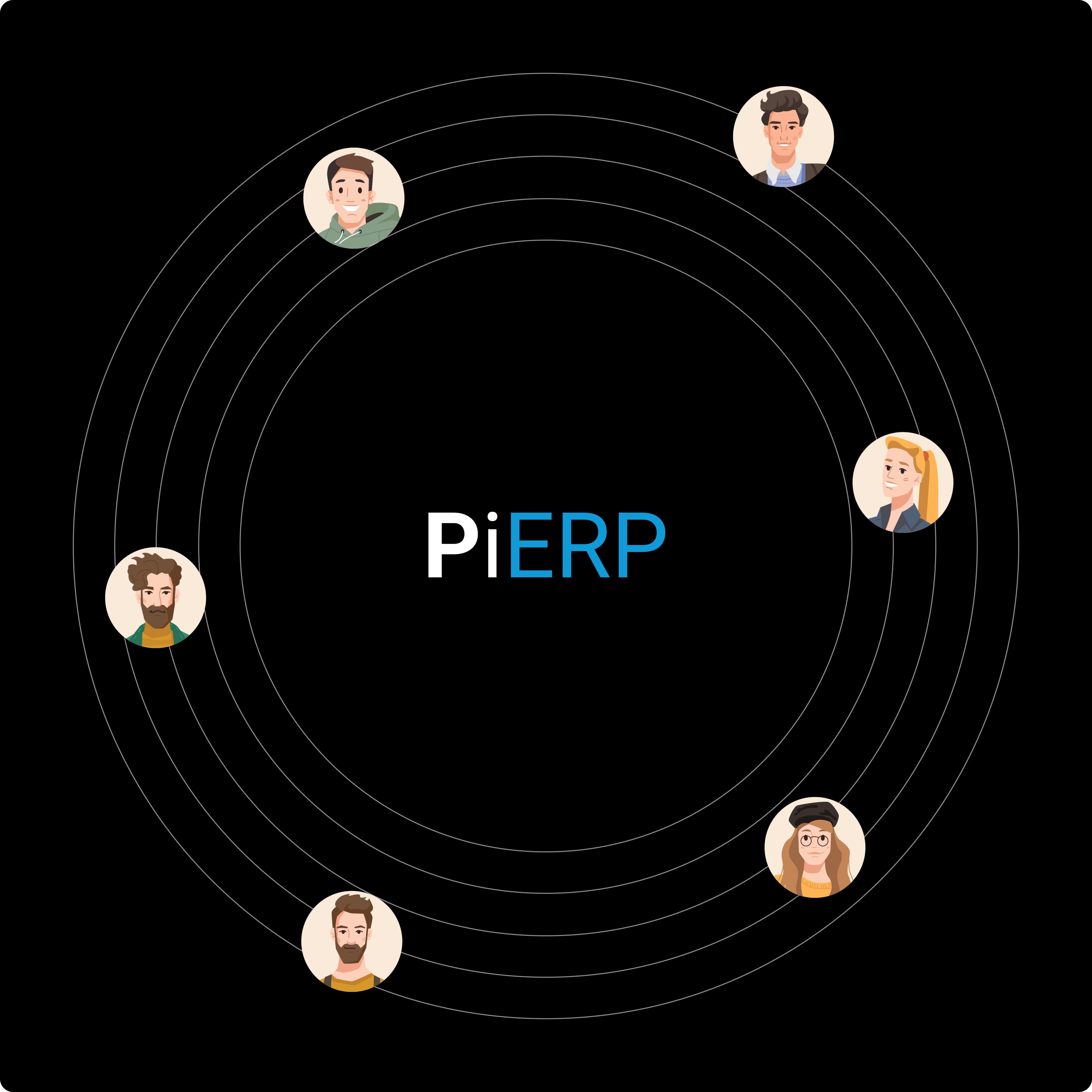The real estate industry, traditionally known for its hands-on approach, is experiencing a major shift thanks to advancements in technology. One of the most exciting changes is the use of Artificial Intelligence (AI) in Enterprise Resource Planning (ERP) systems. These AI-powered real estate ERP modules are revolutionizing real estate development by making processes more efficient, accurate, and insightful. In this article, we'll explore how AI is being used in ERP systems to transform real estate development and why this is a game-changer for the industry.
What Are AI-Powered ERP Systems?
Before we dive into the benefits of AI in real estate, it’s important to understand what AI ERP software is. An ERP for the real estate industry is a software platform that combines various business functions, like finance, human resources, supply chain management, and customer relations, into one unified system. When AI is added to an ERP system, it boosts these functions by allowing the system to learn from data, make predictions, and automate complex tasks.
In real estate development, AI ERP software can process huge amounts of data related to properties, market trends, customer preferences, and financial performance. These modules use this data to improve decision-making, automate routine tasks, and provide actionable insights that would be hard to achieve manually.
1. Making Better Decisions on Site Selection and Land Acquisition
Choosing the right location for a new real estate project is one of the most critical decisions developers make. Traditionally, this involves a lot of manual research, analysis, and even gut feeling. However, AI-powered ERP for real estate business can simplify this process by analyzing a wide range of data points, such as land prices, zoning laws, demographic trends, and proximity to amenities.
AI algorithms can pinpoint the best locations based on the developer’s needs, like target market, budget, and project scope. By analyzing past data and current market trends, AI can predict which areas are likely to grow, helping developers make smarter decisions about where to invest.
AI can also help with land acquisition by automating the due diligence process. For example, AI-powered systems can quickly check the legal and regulatory status of a property, spot potential risks, and even help negotiate purchase prices based on market data. This automation not only saves time but also reduces the risk of costly errors.
2. Improving Project Management
Real estate development projects are complex, involving multiple stakeholders, tight deadlines, and large financial investments. Managing these projects effectively requires careful coordination and precise tracking of progress, costs, and timelines. AI-powered ERP modules can greatly enhance project management by automating many tasks and providing real-time insights.
AI can optimize project scheduling by predicting potential delays and suggesting changes to keep the project on track. For example, if an AI for ERP system detects that a particular supplier is likely to deliver materials late based on past performance, it can automatically adjust the project timeline or recommend an alternative supplier. This proactive approach helps avoid delays and keeps the project moving forward.
Additionally, AI-powered ERP systems can analyze data from past projects to identify patterns and best practices. This information can be used to improve future projects, ensuring that they are completed more efficiently and at a lower cost. By continuously learning from each project, AI systems help developers refine their processes and achieve better results over time.
3. Streamlining Financial Management
Financial management is a critical part of real estate development, as projects often involve large amounts of money and complex financial transactions. AI-powered ERP modules can streamline financial management by automating routine tasks, such as budgeting, forecasting, and financial reporting.
AI can analyze financial data to spot trends and anomalies, helping developers catch potential issues before they become significant problems. If the system detects that a project is over budget, it can alert the project manager and suggest ways to cut costs. Similarly, AI can predict cash flow shortages and recommend strategies to keep the project financially healthy.
Moreover, AI can optimize investment strategies by analyzing market data and predicting future trends. For developers looking to maximize their return on investment, this capability is invaluable. AI can identify the best times to buy or sell properties, suggest optimal pricing strategies, and even recommend new investment opportunities based on current market conditions.
4. Enhancing Customer Relationships
In real estate development, maintaining strong relationships with customers—whether they are buyers, tenants, or investors—is essential for success. AI-powered best real estate ERP modules can enhance customer relationship management (CRM) by providing personalized experiences and improving communication.
AI can analyze customer data to identify preferences and behaviors, allowing developers to tailor their offerings to meet specific needs. For instance, if a developer knows that a particular customer prefers properties with specific features, the AI system can automatically highlight suitable options and send personalized recommendations. This personalization can greatly boost customer satisfaction and loyalty.
Moreover, AI can automate communication with customers, ensuring that they receive timely updates on the status of their transactions or projects. For example, an AI-powered chatbot can answer customer inquiries 24/7, provide information about available properties, and even schedule viewings. This automation not only improves the customer experience but also frees up valuable time for the sales and customer service teams.
5. Predictive Maintenance and Asset Management
For developers who manage properties as part of their portfolio, maintaining these assets is a critical task. AI-powered ERP modules can take asset management to the next level by predicting maintenance needs before they become urgent.
Using data from sensors and IoT devices, AI systems can monitor the condition of buildings and equipment in real-time. If the system detects that a piece of equipment is likely to fail, it can automatically schedule maintenance or alert the property manager to take action. This predictive maintenance approach helps prevent costly repairs, reduces downtime, and extends the lifespan of the property’s assets.
In addition, AI can optimize the management of rental properties by analyzing occupancy rates, rental prices, and market demand. This analysis can help developers set optimal rental rates, identify trends in tenant behavior, and even predict when units are likely to become vacant. By staying ahead of these trends, developers can maximize their rental income and ensure that their properties remain profitable.
6. Easing Regulatory Compliance
Real estate development is heavily regulated, with laws and regulations that vary by location and type of project. Ensuring compliance with these regulations is essential, but it can also be time-consuming and complex. AI-powered ERP for real estate property management can simplify regulatory compliance by automating the tracking and management of compliance-related tasks.
For example, AI can monitor changes in zoning laws, building codes, and environmental regulations that may impact a development project. If the system detects a change that affects the project, it can alert the developer and suggest actions to ensure compliance. This proactive approach reduces the risk of costly legal issues and ensures that projects remain on track.
Additionally, AI can automate the preparation of regulatory reports, ensuring that all necessary documentation is completed accurately and on time. This automation not only saves time but also reduces the risk of errors, which can lead to fines or delays.
Conclusion:
The integration of AI into the best real estate ERP software is transforming the real estate development industry in ways that were once unimaginable. By leveraging AI-powered real estate ERP solutions, developers can make better decisions on site selection, improve project management, streamline financial operations, enhance customer relationships, and ensure regulatory compliance. These innovations are not just about improving efficiency—they are about enabling developers to make smarter, data-driven decisions that drive success in an increasingly competitive market.
As AI technology continues to evolve, its applications in real estate development will only grow more sophisticated. Developers who embrace AI-powered ERP systems today will be better positioned to navigate the challenges and opportunities of tomorrow, ensuring long-term success in a rapidly changing industry.
PiERP is a game-changer for the real estate industry, providing a flexible and integrated ERP for real estate tailored for property management and development. It streamlines various aspects of real estate operations, from project management and financial oversight to client relations and asset management. With its customizable features and robust analytics, PiERP helps real estate professionals make smarter decisions, enhance efficiency, and drive growth. Whether you manage a single property or a large portfolio, PiERP’s scalable design and adaptability ensure it meets your specific needs and supports your long-term success in the competitive real estate market.






